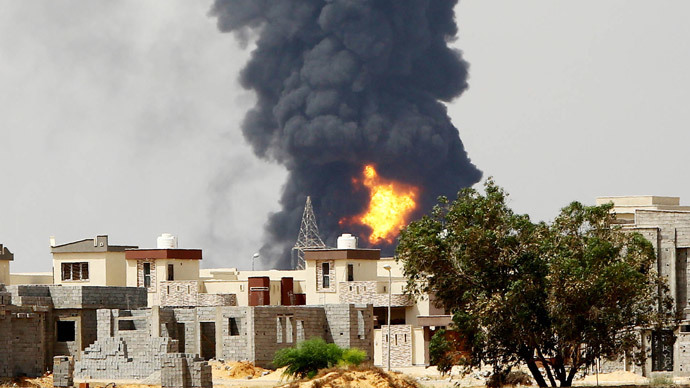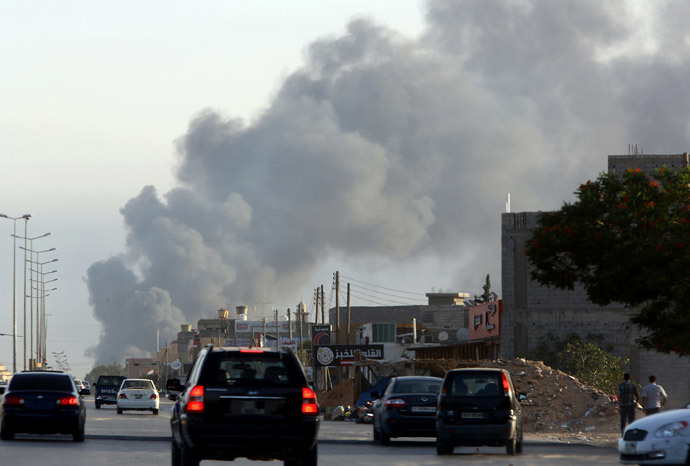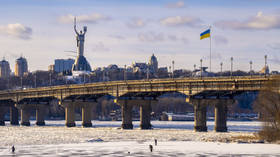Libya is now officially a failed state

It is failed in the sense that it does not have a cohesive central government whose writ runs to every part of the country.
And of course it is failed due to the complete absence of the rule of law, and failed most of all by the West whose decision to embark on a disastrous military intervention in 2011, which led directly to the ousting and murder of former Libyan leader, Muammar Gaddafi, was the catalyst for the disaster that has unfolded in the country since.
Recall the alacrity with which the West jumped aboard the Arab Spring after initially being completely wrong-footed by it when it first broke in Tunisia in late 2010 and immediately thereafter hit Egypt, resulting in the toppling of the Egyptian leader Hosni Mubarak in February 2011.
Both the Ben Ali dictatorship in Tunisia and the Mubarak dictatorship in Egypt had been Western clients, lavished with investment, aid, and trade deals even though their prisons were filled with pro-democracy activists and political dissidents. The hypocrisy involved here, you might think, would have shamed those same Western governments – the US, France, and the UK in particular – into non-interference in the face of what appeared to be a region-wide revolutionary movement from below.
But shame is not something that troubles policymakers in Western capitals. When another of their regional allies, Colonel Muammar Gaddafi, found his government under pressure as the so-called Arab Spring arrived in Libya next, France, Britain, Italy, and the US performed a complete volte face and backed NATO airstrikes against Libyan military forces on the spurious grounds of protecting civilians.
In truth, Gaddafi was sacrificed on the altar of realpolitik, learning a harsh lesson when it comes to trusting states that had lavished his country with trade deals, oil contracts, and political rehabilitation after decades spent as a pariah. For all their rhetoric about supporting democracy and those struggling for democracy, in truth the only test of a government’s legitimacy in the eyes of the West is its willingness and ability to advance their economic and strategic interests.

The key lesson to emerge from the Arab Spring, in fact, has been how adept the Western powers are when it comes to adapting to shifting conditions on the ground. The notion of Washington, London, or Paris being concerned with the protection of innocent human life and upholding the human and democratic rights of the people of the Arab world should by now have been so comprehensively refuted by their actions since the end of the First World War that only those drawing their arguments from a deep well of mendacity or ignorance would dare suggest otherwise.
Libya in 2014 has descended into an abyss of lawlessness of chaos and violence as a direct consequence of NATO’s intervention back in 2011. With the recent announcement by the British Foreign Office warning all British citizens in Libya to leave the country immediately due to the ramping up of violence between the various factions that have emerged from the chaos, the truth in this regard cannot longer be denied.
Libya’s value – the real reason it came in for intervention – is of course its considerable oil reserves, the largest in Africa estimated at around 47 billion barrels' worth. Its proximity to European markets and the quality of its oil making it easier to refine only enhances its attraction to Western oil companies.
Most of Libya’s oil deposits are located in the east of the country, where opposition against the Gaddafi regime began and was strongest. The former Libyan leader had signed oil exploration contracts with a number of Western oil companies, part of the process of him opening Libya up to the West, and prior to mounting the NATO intervention that brought his government down guarantees were given by the rebels that those contracts would continue post-Gaddafi.
Three years later the country is in complete turmoil, riven with factionalism, gang violence, and the absence of a strong central government. This is the consequence of NATO’s military intervention, yet another staged by the West that can be categorized as disastrous.
Western colonialism and imperialism has never been more exposed as they have when it comes to Libya.
A leader who could once boast of a phone book containing the numbers of world leaders and royalty, who’d opened up his country for business with Western corporations and governments, Gaddafi was left to be slaughtered like an animal by an armed mob as he tried to flee his home town of Sirte during the fighting, the motorcade he was travelling in stopped by a NATO airstrike.
The Libya that once boasted the highest level of development of any African nation, where the standard of education, housing, infrastructure, and health stood as a beacon in a region that has long labored under the depredations and ravages of free market capitalism; the Libya that helped set up the African Union and invested billions in development projects throughout the African continent, working tirelessly for African unity - this Libya has been destroyed.
The statements, views and opinions expressed in this column are solely those of the author and do not necessarily represent those of RT.
The statements, views and opinions expressed in this column are solely those of the author and do not necessarily represent those of RT.













